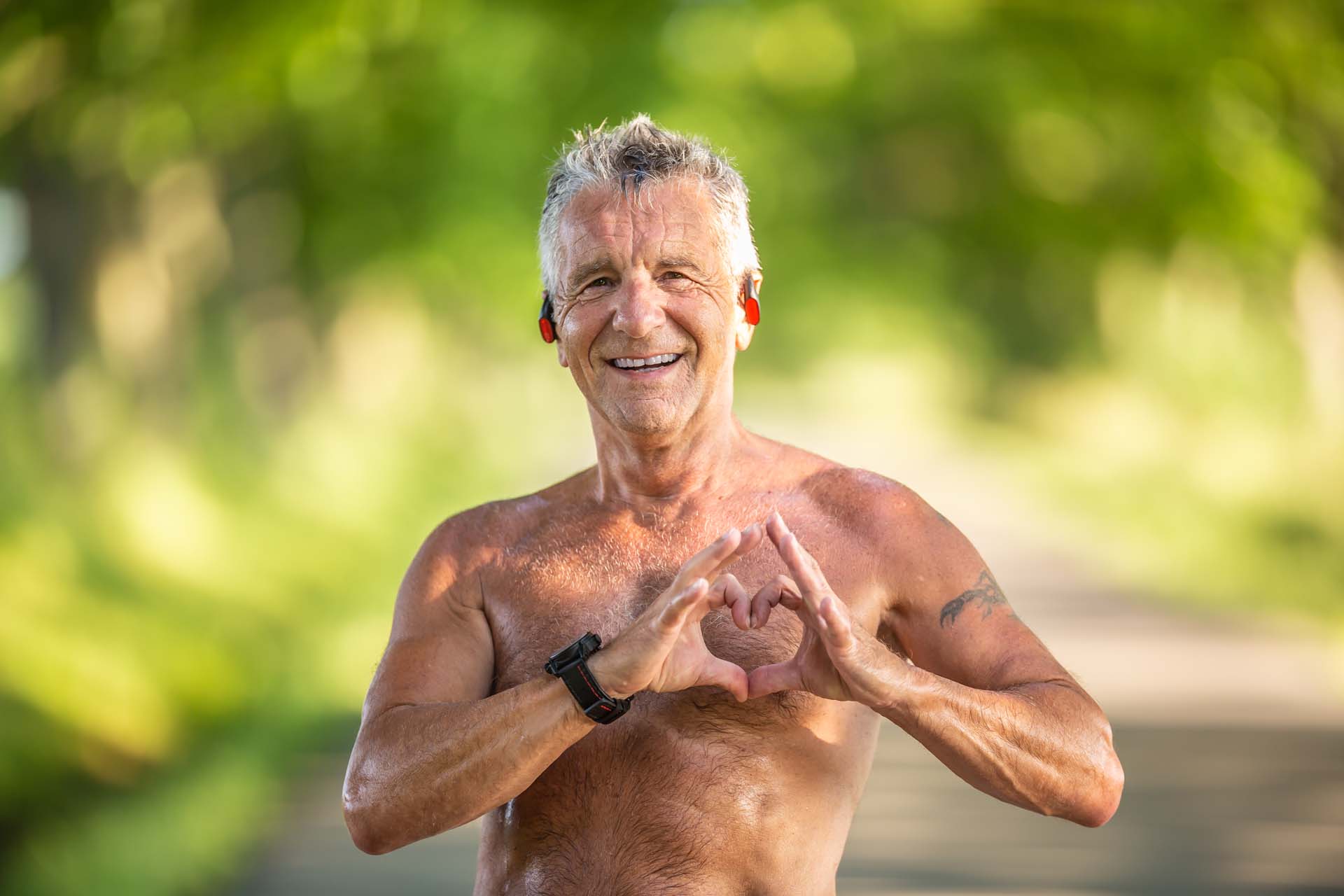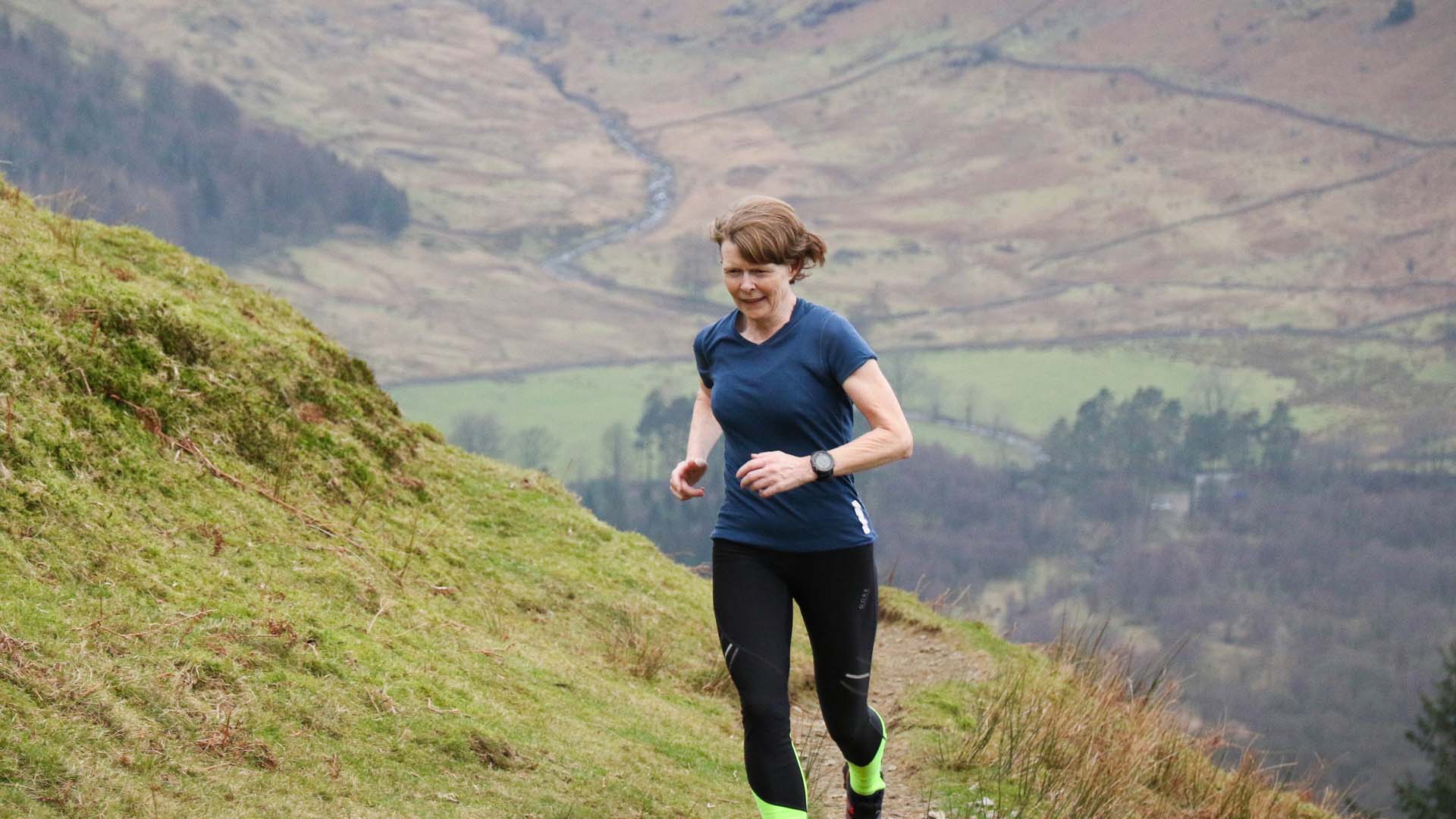
Angela White is a world record-breaker. In 2019 she became the oldest woman to run from John O’Groats to Land’s End.
Aged 62, she ran over 62 peaks in the Lake District in under 62 hours, she completed the Spine Challenger North in January 2024 and competes in duathlons and triathlons.
But the retired surgeon, aka The Running Granny, insists she isn’t a natural athlete. She only started running in her fifties and her message is that it is never too late to follow your dreams.
"I hear people saying that if they had their time again, they would do this or that,” says White.
“You don’t need to have your time over again. It may not look like it would have done when you were in your twenties or thirties, but you can still dust off those dreams and challenges and do them.”
White is out to change people’s mindsets. Her message is that we must not to take it easy as we grow older, but instead get moving and change our attitude towards ageing.
“I’m 64 now,” she says. “My life expectancy is 87, so that’s another 23 years, a whole career’s worth of years, so what am I going to do with it? That is my message for anyone approaching their fifties and sixties – that life actually can begin there.”
White isn’t just an evangelist who happens to have blessed genetics.
As a retired orthopaedic surgeon who specialised in the care of the elderly, she actually understands the science.
"We now know that ageing by itself doesn't cause major problems until we get into our 90s,” she explains.
“A number of research projects are looking at ‘super-agers’, where a high number of the population already survive to their nineties or hundreds.
"Our muscles and bones are living tissue and develop in accord to what we ask them to do. Do nothing and they won’t serve you well. Keep moving and move more and they’ll happily develop to support your movement.
"We shouldn’t be taking it easy as we get older: in fact it’s more important than ever that we keep moving.”
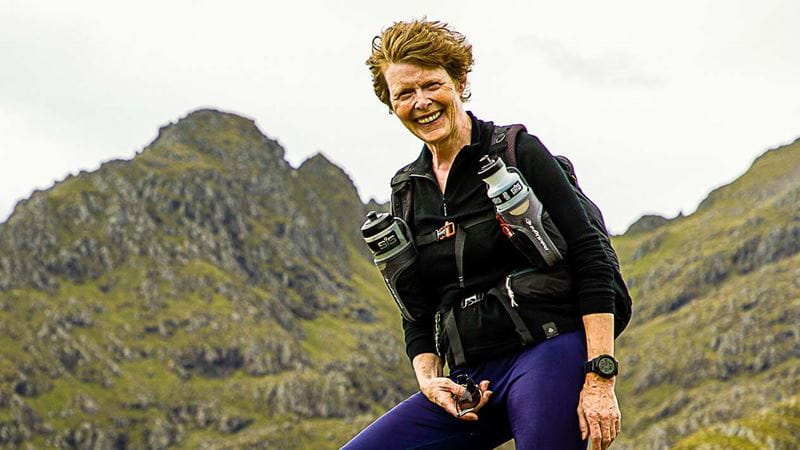
Angela's tips to get you moving, whatever your age.
"The only limits to what you can do are within your own head. You can still do all of the things you might have wanted to do or used to do; they just won’t look the same. But they are just as important, just as satisfying and just as challenging now as they were then."
White worked in the computer industry before starting medical school in her thirties and went on to qualify as a surgeon. For the next two decades she juggled her career with raising three children.
“Then I had three close family members who became seriously ill and died within four months of each other,” she says. “One of them was my husband Alan, who died from a brain tumour. I didn’t give myself any time off.
“I threw myself into work and I became overworked, overweight, unfit and unhappy. Over the next two years I had a couple of minor health problems and I realised that if I didn’t help myself then I wouldn’t be able to help anyone else.”
So White started walking: just 15 minutes a day after work. She admits even that was hard.
“I got home then I would have to go straight out again. I felt guilty because there were things I had to do for my family, in the house and for work. I was ridiculously unfit and was huffing and puffing up the smallest hill."
“A couple of years later, in December 2011 I saw an advert by a lady called Sandra saying she was setting up a small running group for older women. It took me weeks before I picked up the phone to ring her. I thought I would either be too slow, that I would look ridiculous, or they would laugh at me.”
But she received a warm welcome and it opened up a whole new world.
“Sandra had started running at the age of 62 and now at the age of 67 she was planning on taking part in the Joss Naylor Challenge,” White says.
“It’s a fell run of 48 miles over 30 mountain peaks and with a total of 17,000ft of ascent. She was checking out the route and it all sounded terribly unsafe. I was very curious, so I asked if I could join her.” White bought some trail shoes, and a whole new world of mountains and hills opened up.
“It was liberating. The clag will be down, it’s blowing a hooley – but it makes you feel alive. It appealed to me at a very deep level. It sparked me into life.”
White was with her when Sandra became the oldest woman to finish the challenge.
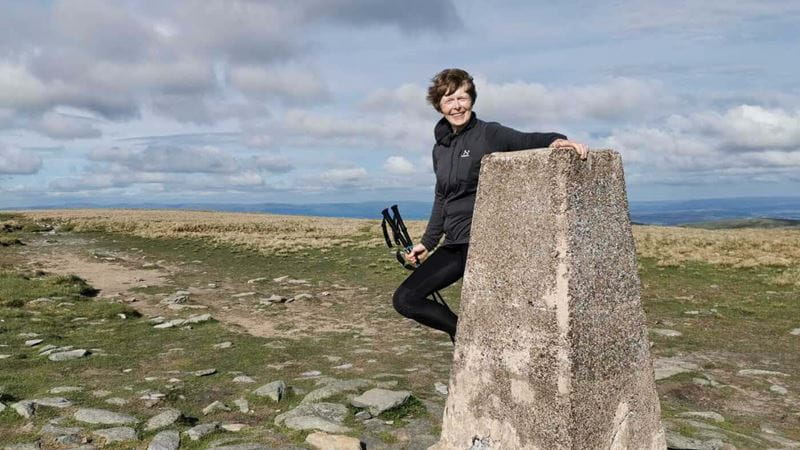
White decided to enter a multi-day ultra-marathon called the Northern Traverse, which follows the 192-mile Coast to Coast Path.
“I had no ambitions to do it when I saw it,” she remembers. “In my naivety I imagined it would be very fit young men taking part. But I started to think about it.
"My first granddaughter was born that year. She would never know her grandfather, Alun, and he would never know her. I decided to take it on as a challenge to raise money for the brain tumour charity.
“As a junior doctor I had experienced the sleep deprivation but not with the physical fatigue and pain,” she says.
“When it got tough, I reminded myself I was there out of choice and that people who suffered from brain tumours and their families are suffering a lot more and for a lot longer than I was. The pain from my blisters would heal, but their pain won’t.”
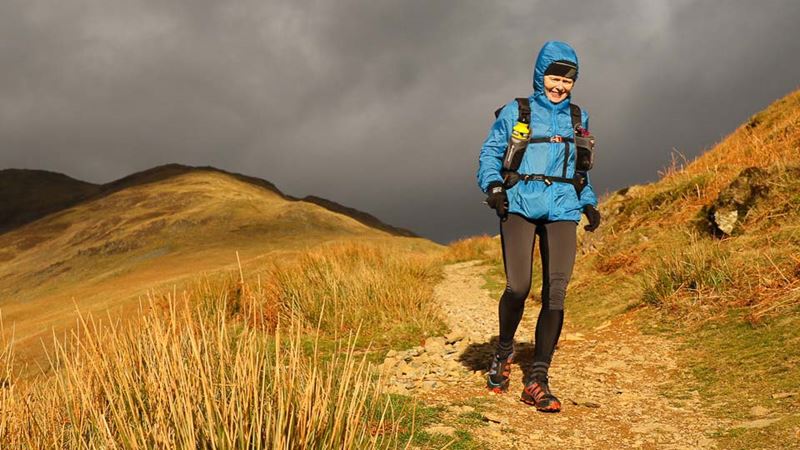
“I’d never had a dream, any ambition at all, to run the length of the country,” says White.
“I was looking for a way to raise awareness of the need for all of us to take action to stave off ill health as we age. In the end, I chose JOGLE (John O'Groats to Land's End) because my concerns around healthy ageing affecting every individual living the whole length of our country.
"I thought that if I could complete it, there was the possibility of a Guinness World Record as the oldest woman to do so.
"I wanted to inspire other people to follow their dreams and not let our perceptions of ageing be a barrier.”
It took her two years to prepare for JOGLE – and the logistics were harder than the training.
She says: “I didn’t use a trainer, didn’t read any training plans. There aren’t any for someone my age planning on running more than 800 miles. I'd planned to run 40 miles a day, with six hours rest each day until I reached Land’s End.
"But in reality, the daily mileage varied from 70 miles on the first day to about a dozen on the last."
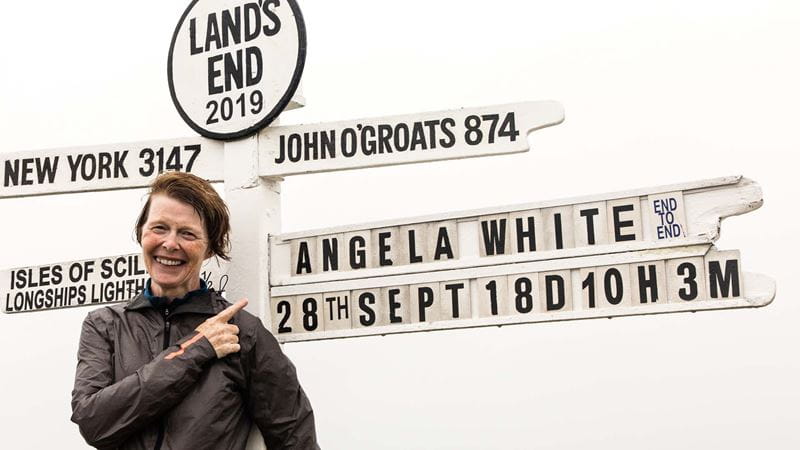
She completed the 875-mile challenge in 18 days, 10 hours and three minutes, in September 2019.
Along the route she was spurred on by hundreds of other runners who joined her for short stints to keep her company. But it was the toughest thing she has done.
“I would talk to my body, say that it was going to be okay and to crank down the pain from 10 to one so I could get through the next bit.”
In 2021, aged 62, she ran 62 peaks in the Lake District with a total elevation – that’s all the uphills– of 45,000ft. Her run time was 61 hours and 32 minutes, plus 14 hours for transitions between peaks and rest breaks – including just three hours’ sleep.
“I wasn’t confident going into it,” she says. “I hadn’t been able to train in the hills because of Covid restrictions, so I wasn’t as hill fit as I should have been. It was a tough challenge, but I had a fantastic support crew. None of these challenges would have been possible without their support.”
Her challenge was turned into a YouTube film.
Since then, she had time off due to a knee injury, but has gone on to complete ultra marathons, the Spine Challenger North, triathlons and has qualified for the 2025 duathlon wold championship.
But she still insists she's no different to anyone else.
“I am not an athlete. I am a back-of-the-pack shuffler," she says. "But I can keep going.
"It is amazing what your body can do when you ask it.”
Phillipa Cherryson is senior digital editor for Saga Magazine. Phillipa has been a journalist for 30 years, writing for national newspapers, magazines and reporting onscreen for ITV. In her spare time she loves the outdoors and is an Ordnance Survey Champion and trainee mountain leader.
View author page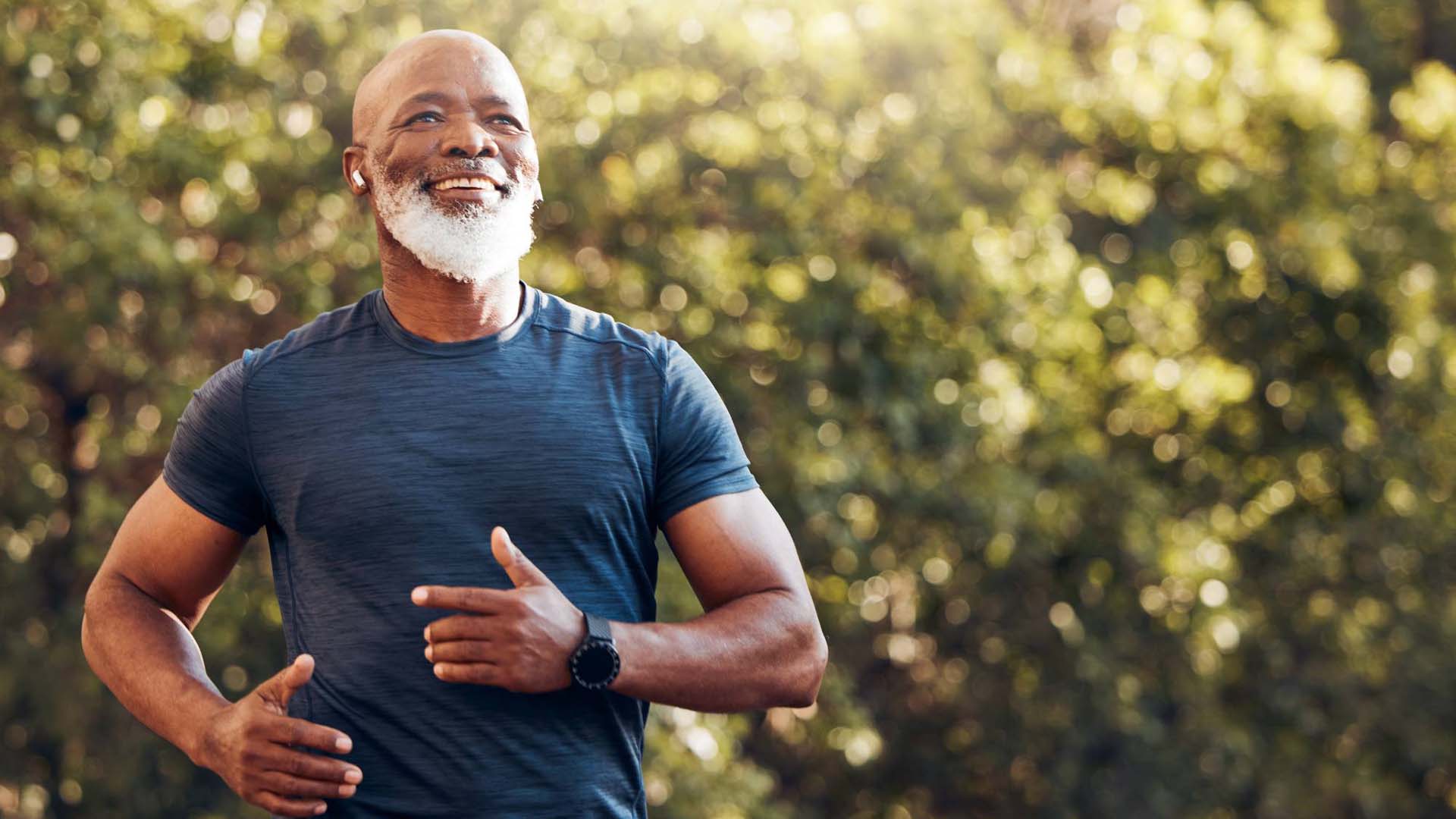
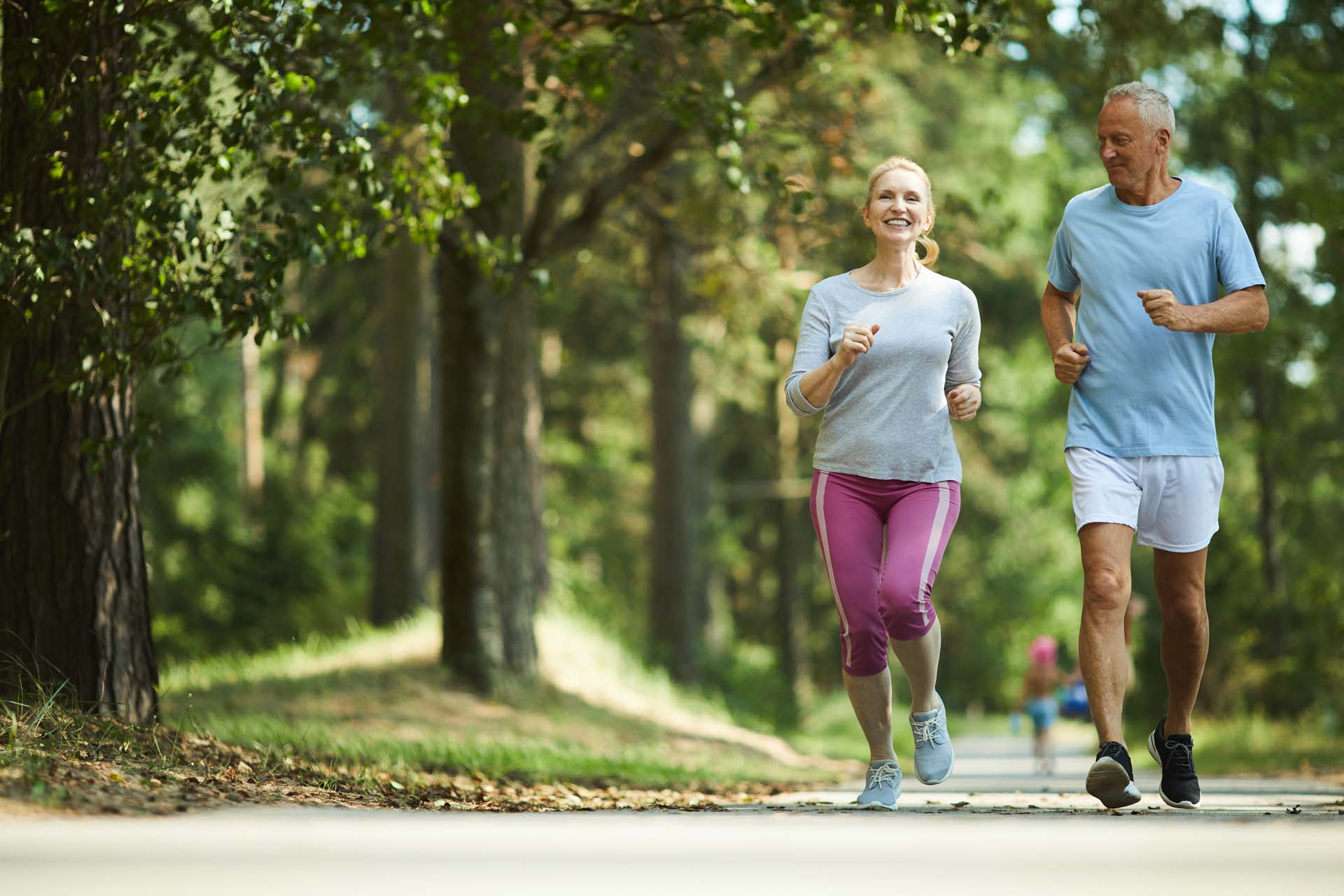

Running a half marathon is all about the right training. Here’s how to go about it.
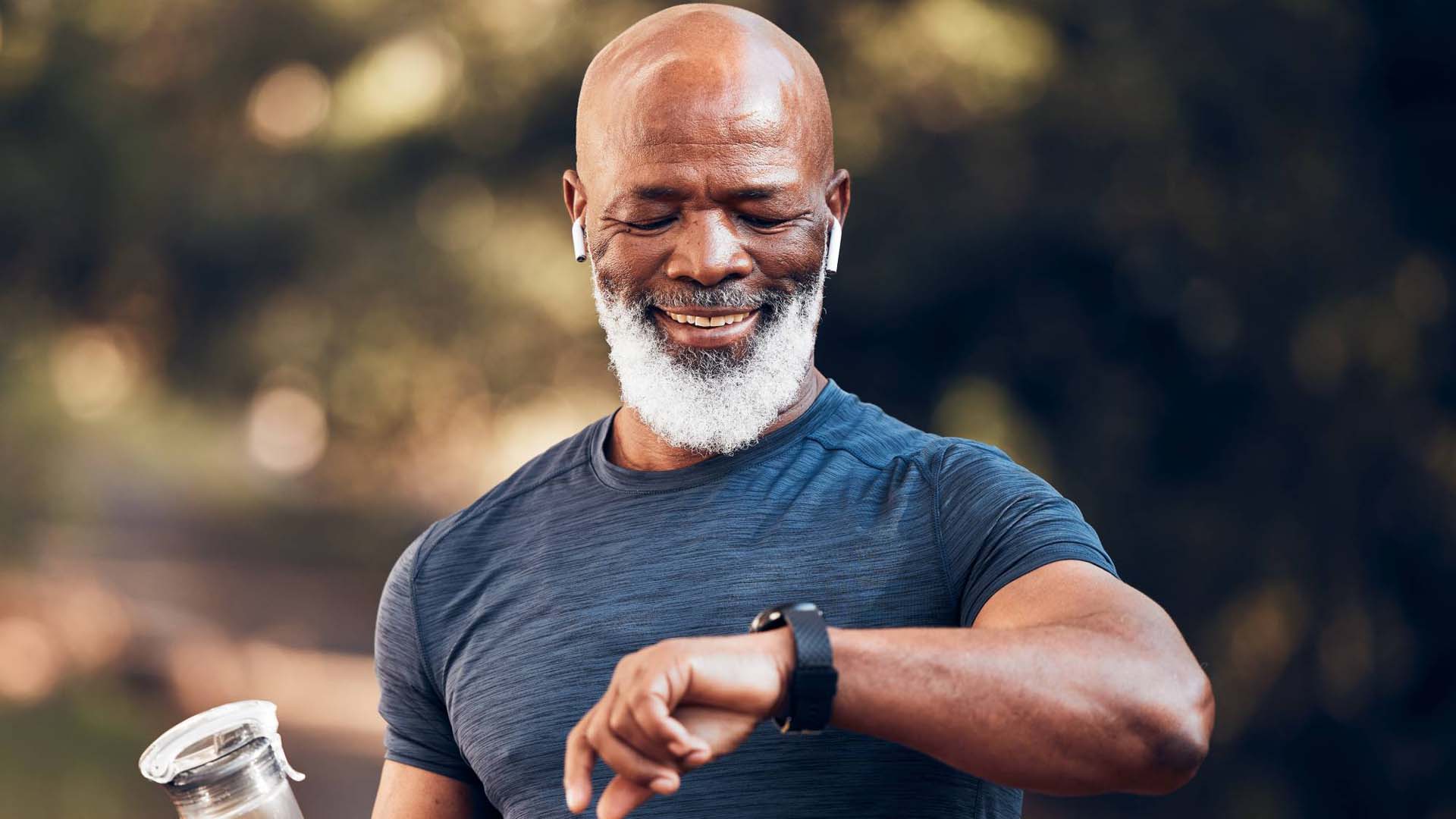
Your questions answered about what really is a good 5k time.
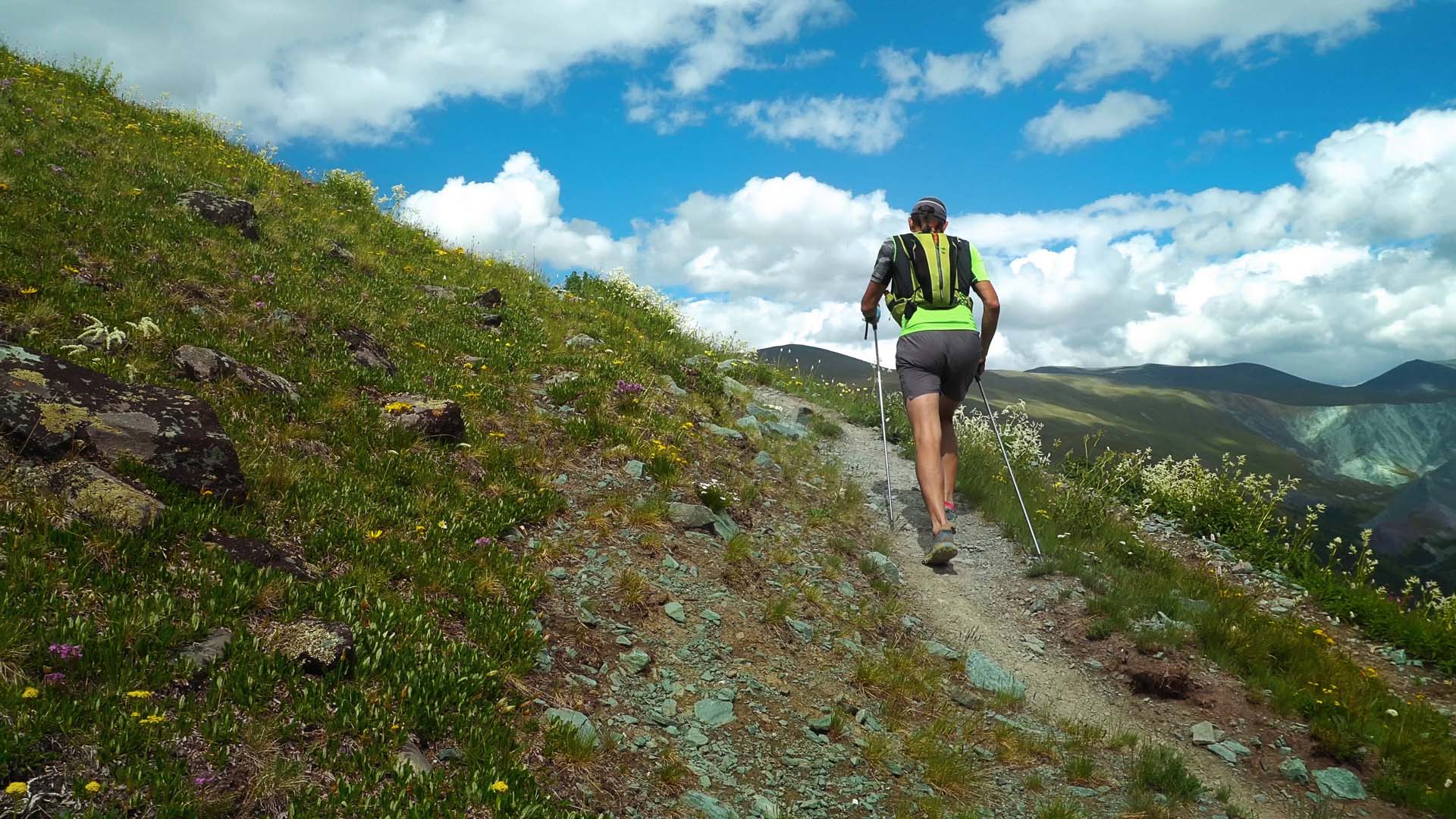
The secret to being a successful trail ultra-runner as you get older includes a lot of walking and eating.

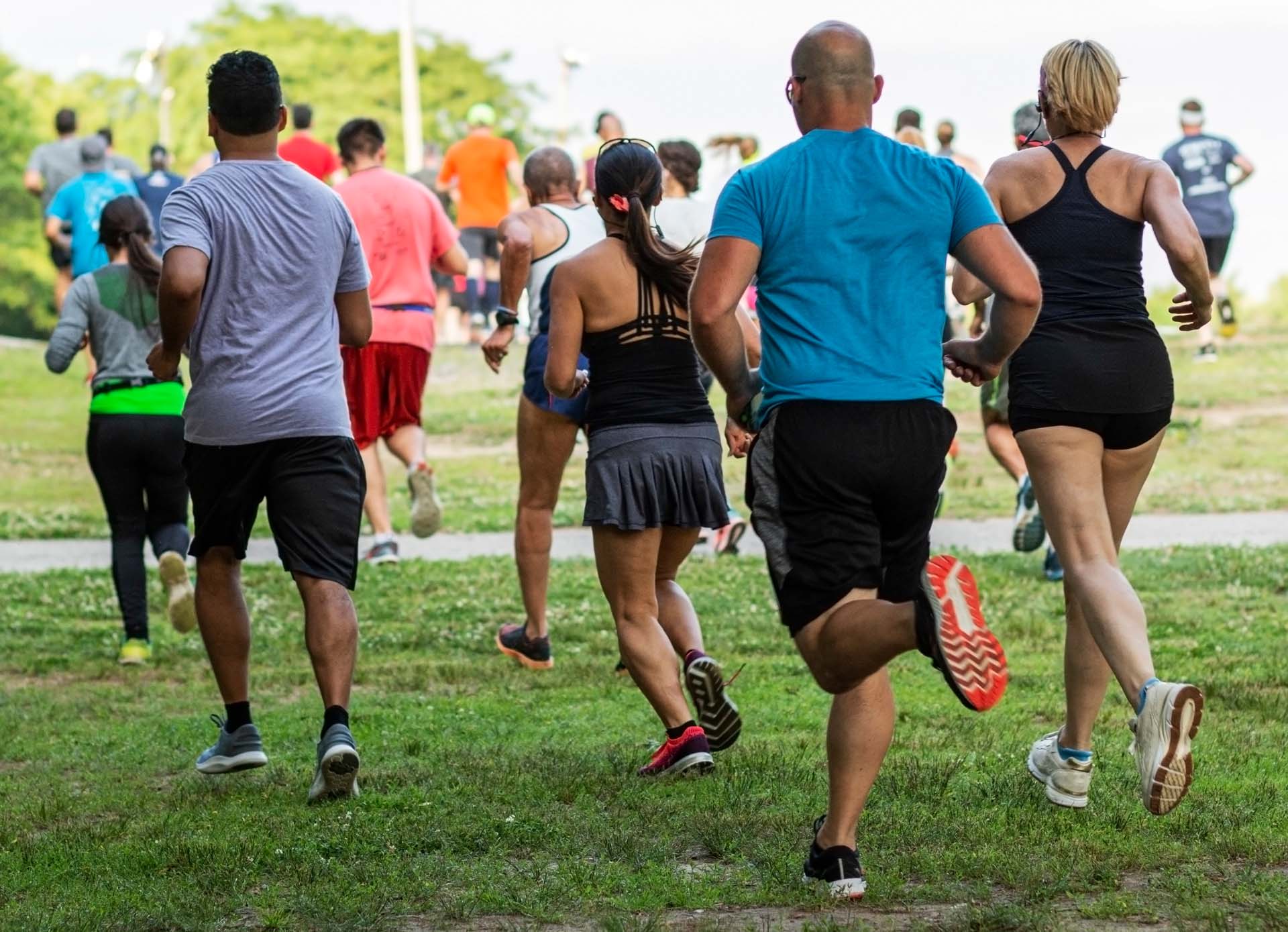
Expert advice on how to train for a 5k with just three runs a week.
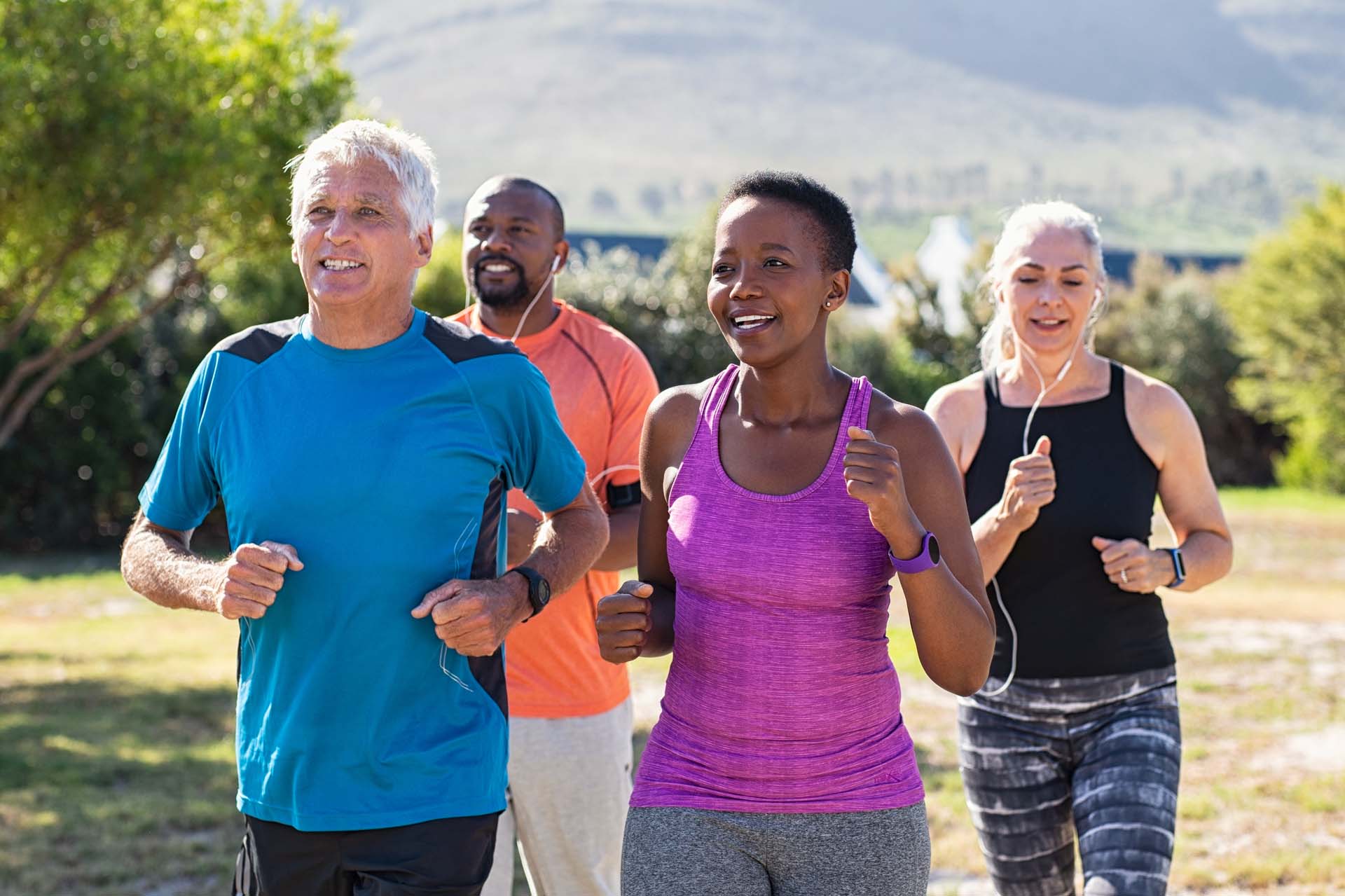
Running your first 5k is all about getting the pace right.
